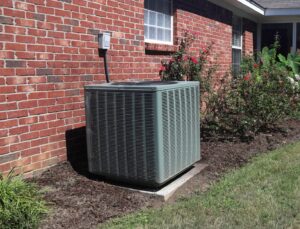12 Questions To Ask Your Roofing Contractor Before You Sign a Contract

Hiring a roofing contractor is no small task. The right choice can make the difference between shoddy workmanship and a durable, high-quality roof. But finding the right contractor can seem like finding the needle in a haystack.
A reputable roofing contractor can set your mind at ease, knowing your roof won’t start leaking the next time it storms. To help you find that invaluable peace of mind, you should ask these 12 questions of any roofing contractor you’re considering—especially before signing any paperwork.
What Roofing Materials Are Best for the Weather in My Area?
Your contractor should understand the right roofing materials for your local weather. A home in Texas may need impact-resistant and reflective shingles to fight large hail and extreme heat, while a Minnesota home needs a roof that can withstand the heavy weight of wet snow. Roofs should also stay intact through tornadoes, hurricanes, or gusty storms if an area is prone to them.
What’s Your Company’s Full Name and Physical Address?
A physical address shows a roofing company’s established presence in the community. If a roofer only has a P.O. box, ask for its full name.
Verify all names and addresses online through social media, online databases, Google Reviews, and the Better Business Bureau (BBB.) If the representative can’t provide a physical address, that’s a red flag, and you should move on to another company.

Can You Show Me Your Licensing and Insurance Information?
Licensing is one tool that local and state governments may use to verify a business is legitimate, its technicians are trained properly, and that it follows the law. Business licenses serve as both company identification and tax information. Contractor licenses show that the team has met the necessary qualifications to work in the area.
A reputable roofer won’t hesitate to provide you with its business and contractor license if you ask for it. Check with licensing offices to make sure that the credentials are current and that the company has no outstanding violations.
You’ll also want to ask the roofing company about its insurance coverage. Both workers’ compensation and general liability insurance protect you from paying medical bills and related expenses if someone gets injured on the job site.
Do You Use Subcontractors?
Some roofers cut costs or get help for larger projects by hiring subcontractors. Unfortunately, not all subcontractors have the right licensing and insurance—and that puts you and your home at risk.
Just like with the roofing company itself, verify each subcontractor’s name, phone number, and physical address. Check their information against Google Reviews and the BBB, and make sure their licensing is current and in good standing.
It’s also a good idea to ask why a roofer uses subcontractors. Does the crew need extra help for a particularly big project? Or is this a common practice?
How Many Years Have You Been In Business?
A roofing company’s establishment date isn’t the only factor you should consider as you make a decision. However, the longer a contractor has been in business, the more references and work examples it can point to.
Experienced roofers tend to be more familiar with a variety of projects, from decking to flashings, shingles, gutters, and more. They also tend to have established relationships with suppliers and manufacturers, which could save you time and money.
Do You Give Written Estimates?
A roofing contractor should always give you a full, itemized, and written estimate including the following information:
- Materials and their costs
- Labor costs
- Timeline for project completion
- Warranty information
- Payment options and schedules
- Any other necessary work, fees, and policies
Estimates ahead of time help you avoid surprise costs later on. Ask if the estimate is fixed or if it’s subject to change. Fixed estimates
During the project, keep track of anything that gets damaged and take pictures. That way, you can ask for reimbursement or repairs before the job is done.
How Will You Protect My Home During the Project?
Roofing projects can be messy, and when debris falls off the roof or is left behind, it can damage your property.
Ask the company what steps it takes to protect your home. Many contractors set mandatory foot traffic patterns for their crews to avoid crushing plants, grass, and flowers. Others keep heavy equipment on paved surfaces or use heavy-duty magnets to pick up stray nails at the end of the project.
What are My Warranty Options?
Roofing warranties generally fall into two categories: manufacturer warranties covering materials, and workmanship warranties covering installation. These warranties often last one year, but some are longer than others.
Consider how important a warranty is to you and if you’re willing to pay more for an extended warranty. Ask about the types of coverage the manufacturer and contractor offer, their terms, and if both materials and labor are included.
How Do You Keep the Project On Track?
Roofing companies should always have a contingency plan to prevent delays. However, even the most experienced contractors can run into bumps along the way.
A few strategies that roofers may use to keep projects on time include:
- Having extra employees on call to complete work if the project falls behind
- Carrying extra supplies, tools, and materials on board their trucks
- Anticipating and planning for inclement weather
Ask the company how it communicates delays and updates timelines, as well as if there are any penalties or guarantees related to completion dates. If you’re under a tight deadline, consider asking for a “no later than” clause that renders the contract null after an agreed-upon time.
What Happens to Old Roofing and Refuse?
You don’t want your yard filled with debris and waste after your roofing project is complete, so ask in advance what the contractor will do with the material.
Some old roofing materials are recyclable, and others must follow safe disposal protocols in accordance with the law. Most reputable companies will bring refuse containers and dumpsters to comply with regulations and stay organized.
How Will You Protect My Gutters?
Gutters can take a beating during roofing projects, especially in places where roofing crews set up ladders. Ask the company how it protects gutters from dents, damage, and falling debris. It’s best to find a team that assesses your gutters’ condition before and after the project, then repairs any damage caused during the work.

When Do I Need to Pay?
Most roofing companies let customers pay once the project is complete, though some require a small deposit. You should never need to pay in full before the job is completed or make payments ahead of time. If you need to put down a large sum before the end of the project, it’s best to find a different company.
If possible, ask about pushing the payment schedule back enough so that your new roof can experience stormy weather and you can check that there are no leaks.






Leave a Reply